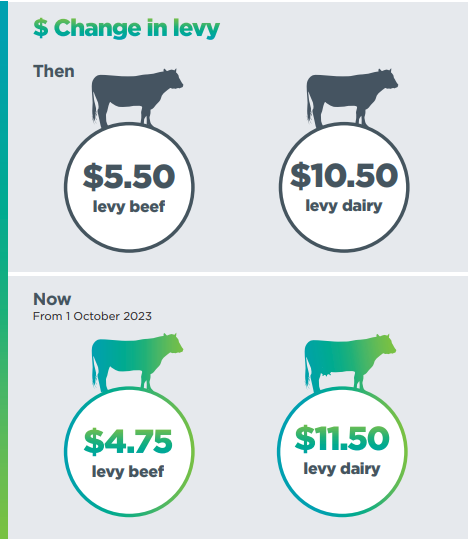Beef and dairy farmers should keep their NAIT accounts up to date. They must record the correct animal type to ensure they are paying the correct TB slaughter levy.
TB slaughter levy changes effective as of 1 October 2023
An annual review of TB differential slaughter levy rates for beef and dairy cattle has delivered levy updates as part of this year’s TBfree programme.
 The TB differential slaughter levy is collected to support funding of the TBfree programme on behalf of beef and dairy industries. The funding shares change annually based on shifts in each industry's relative size and value.
The TB differential slaughter levy is collected to support funding of the TBfree programme on behalf of beef and dairy industries. The funding shares change annually based on shifts in each industry's relative size and value.
Each year the levy rates are reviewed under the TBfree Funders Agreement to ensure that the overall funding of the TBfree programme aligns with the agreed funding levels. Levies are adjusted to reflect the latest industry farm gate values and slaughter volumes for both dairy and beef stock.
From 1 October 2023, the new differential slaughter levy rates are:
- $11.50 per head for dairy animals, changing from $10.50 per head
- $4.75 per head for beef animals, changing from $5.50 per head.
There will be no changes to the deer industry levy.
While fully supportive of the TB Programme, DairyNZ expressed concerns the timing adds further pressure to farm businesses currently challenged by the reduced milk price.
In making its decision, the OSPRI Board acknowledged that all farmers are under financial pressure, but if the differential slaughter rates are not recalibrated now for the dairy levy, there would likely be a need to increase this rate by greater increments in the future.
Any adjustments to the differential slaughter levy are communicated to DairyNZ, Beef + Lamb New Zealand, and Deer Industry New Zealand as the industry levy bodies in the TBfree Funders’ Agreement and are made in line with the annual funding level specified.
Adjustments in differential levy rates do not provide an overall increase in the annual funding of the TBfree programme — but do ensure consistent funding to enable the programme to deliver.

